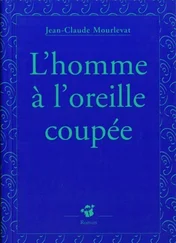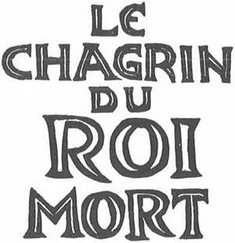Jean-Claude Mourlevat - Winter's End
Здесь есть возможность читать онлайн «Jean-Claude Mourlevat - Winter's End» весь текст электронной книги совершенно бесплатно (целиком полную версию без сокращений). В некоторых случаях можно слушать аудио, скачать через торрент в формате fb2 и присутствует краткое содержание. Год выпуска: 2010, ISBN: 2010, Издательство: Candlewick, Жанр: Старинная литература, на английском языке. Описание произведения, (предисловие) а так же отзывы посетителей доступны на портале библиотеки ЛибКат.
- Название:Winter's End
- Автор:
- Издательство:Candlewick
- Жанр:
- Год:2010
- ISBN:9780763651749
- Рейтинг книги:5 / 5. Голосов: 1
-
Избранное:Добавить в избранное
- Отзывы:
-
Ваша оценка:
- 100
- 1
- 2
- 3
- 4
- 5
Winter's End: краткое содержание, описание и аннотация
Предлагаем к чтению аннотацию, описание, краткое содержание или предисловие (зависит от того, что написал сам автор книги «Winter's End»). Если вы не нашли необходимую информацию о книге — напишите в комментариях, мы постараемся отыскать её.
Winter's End — читать онлайн бесплатно полную книгу (весь текст) целиком
Ниже представлен текст книги, разбитый по страницам. Система сохранения места последней прочитанной страницы, позволяет с удобством читать онлайн бесплатно книгу «Winter's End», без необходимости каждый раз заново искать на чём Вы остановились. Поставьте закладку, и сможете в любой момент перейти на страницу, на которой закончили чтение.
Интервал:
Закладка:
On the first landing she stopped and listened. She did the same on the next floor, with no more success. Then on the fourth floor. It was as if no one at all lived in the building. Perhaps it had been condemned as a health hazard. She went down to the yard again and tried the other staircase. This was lighter and better maintained, and the electricity on it was working. On the first floor she found two closed and silent doors, the same on the second and third floors, but right at the top, under the roof — the clear, child’s voice inside made her heart turn over.
“It stings!” the voice was complaining. “The soap hurts my eyes!”
Now she was in no doubt at all. She knocked vigorously on the door. It was opened by the old woman she had seen in the street, her sleeves rolled well up over her pale, wrinkled arms, a washcloth in her right hand. Helen ignored her and marched straight to the big tub of steaming water in the middle of the room. Octavo stood up, stark naked and dripping, and flung himself into her arms.
“Helen!”
“Octavo! Oh, I’m so pleased to see you again! I am so pleased!”
She hugged him close for a long time, then kissed his cheeks and his hands hard. “What are you doing here, Octavo?”
“I’m staying with Auntie Marguerite, of course. Are you crying?”
“No. Well, yes. Auntie Marguerite?”
She let go of the child, suddenly aware of her own incivility. “I’m so sorry,” she said, turning to the woman. “Just bursting in like that!”
“Oh, never mind! I think you must be the famous Helen?”
“I don’t know about famous, but I’m Helen. And you’re —?”
“I’m Paula’s elder sister, Marguerite.”
That was obvious. She had the same gentle chestnut-brown eyes and the same nose as Helen’s large consoler. Only her girth and her age were different. Marguerite must be ten years older and weigh four times less than her “little sister.” Helen often remembered the story of her childhood that Paula had told her. “I remember, my sister, Marguerite and I had caught a hedgehog. . . .” It was funny to see the second character in that anecdote suddenly appear, at least half a century older. This frail lady who wasn’t very steady on her feet would never be able to run after hedgehogs now.
“Paula sent Octavo to me on the bus this winter,” she said, explaining the little boy’s presence.
“That’s right,” the child agreed. “But she’ll soon be coming to find me. I wrote her a letter. Without any spelling mistakes, and I did her a drawing.”
“Very good, Octavo. And how’s your Mama Paula?”
“She’s fine.”
Marguerite nodded, but her sad smile obviously concealed another story. As soon as she could, she drew Helen into the kitchen and closed the door.
“How is Paula?” Helen asked for the second time, steeling herself for the reply.
“I haven’t heard anything from my sister for over a month,” said Marguerite, and she burst into sobs. If she would let go like that in front of a stranger, the poor woman must have been wanting to pour her heart out for a long time.
“Are you afraid something’s happened to her?”
“Oh, yes, I am! Octavo had a letter for me in his pants pocket. You can read it — look, it’s over there on the dresser.”
Paula’s careful, cramped writing filled half a page. Lovingly, Helen imagined her consoler’s large hand moving over the paper. She read to the end without raising her head.
Dear, dear Marguerite,
I’m sending you Octavo by the bus tomorrow. I shall put him in the care of someone who will take him to you. It’s getting too dangerous here. Several young people escaped from the boarding schools this winter. Poor children, they set off for the mountains or down the river, and God knows what’s become of them. The Phalange people accuse us of being their accomplices (and for once they’re not wrong) and they’re threatening to teach us a lesson if that kind of thing goes on. But it does go on. They say they’ll know how to punish us. They say we all have our weak points. So I’m putting my own weak point on the bus. Please look after him as if he were your own. He’s a good child. I hate parting from him, but I’ll come for him as soon as possible. I know you’re not in very good health, but he won’t give you any trouble. Of course I’ll reimburse you for all your expenses. Send him to school if you can; he likes learning things.
With all my love,
Your sister, Paula
“There, you see!” cried Marguerite as soon as Helen had finished reading. “I’ve heard nothing since that letter. There was no reply when I wrote back. I’d have gone to see her, but the journey’s too much for me. I have a weak heart, my hip gives me trouble, and then of course I can’t leave Octavo.”
Helen thought for some time. Several young people had escaped? Did Paula mean just Milena and herself and the two boys, or had there been others? Had their escape brought a wind of change and freedom blowing down the dismal school corridors, a wind that couldn’t be contained? What had become of Catharina Pancek, Vera Plasil, and the others? And above all, what had become of Paula? Her silence was worrying. The idea that her consoler might be suffering was unbearable to Helen.
“Do you know what time there’d be a bus going up there?” she asked.
“There’s one that leaves from the bus station at twelve thirty, but you’re surely not going to . . . Why, you haven’t even eaten!”
Helen was already on her feet. “If I run, I can catch it.”
She put her coat on, checked that she had enough money in her purse for a ticket, and ran back to Octavo, who was still splashing about in the tub.
“I’m off again, Octavo darling. Sorry.”
“I know. You have to leave because if you’re not back, they’ll put someone else in the black hole.”
It took Helen several seconds to realize what he was talking about.
“Oh no, that was at the school! I’m not there anymore now. I’m free. I can come and go at random!”
“Where’s Random? Will you take me there with you?”
She burst out laughing. “I mean I can go where I like. And yes, I’ll take you around with me sometime.”
“Promise?” asked the child, drawing a design in bath foam on Helen’s cheek.
“Promise. As soon as things are better again.”
She hugged Marguerite as if she’d known her forever, and ran down the stairs. “Any message for your sister?” she called up from the yard.
“Yes, tell her I’ve put Octavo down for school!”
She ran along the riverbank, the front of her coat still wet from Octavo’s bathwater, retracing the way she had gone several months earlier in the middle of the night when she was looking for the Wooden Bridge. She hadn’t known at the time that she was soon to be reunited with Milena. And now she’d lost touch with her again.
The bus station was quiet, but Helen noticed several soldiers pacing up and down in their khaki uniforms, with guns in their hands. They were clearly on a war footing. She swiftly boarded the almost empty bus bound north. Once she was seated, she had time to think about what she had done. Yes, she was leaving the capital just at the moment when it looked as if the fighting were about to begin; yes, she would have to be back in a few days’ time for the winter fights, supposing they were held. But a force ten times stronger had made her catch this dingy bus to go find Paula. She couldn’t abandon the woman who had been so good to her, not after Paula had comforted her when sadness and despair threatened to overwhelm her. She wouldn’t let Paula down. She could never forgive herself if she did.
With nothing to read, it was a long journey. At every village people got out of or onto the bus, taking no notice of one another. The red-faced driver manhandled his vehicle around the bends and up slopes, tooting angrily at everyone else on the road as if they had no right to be there. Late in the afternoon he stopped outside a café, went in, and didn’t come out. Gradually the passengers followed him, and soon they were all inside. The room was dark and smoky. Helen sat down at the end of one table. Steaming bowls of soup were passed over her head, and plates of ham or omelettes. Her stomach was crying out with hunger. She looked in her purse, but it contained just enough for her to buy her return ticket.
Читать дальшеИнтервал:
Закладка:
Похожие книги на «Winter's End»
Представляем Вашему вниманию похожие книги на «Winter's End» списком для выбора. Мы отобрали схожую по названию и смыслу литературу в надежде предоставить читателям больше вариантов отыскать новые, интересные, ещё непрочитанные произведения.
Обсуждение, отзывы о книге «Winter's End» и просто собственные мнения читателей. Оставьте ваши комментарии, напишите, что Вы думаете о произведении, его смысле или главных героях. Укажите что конкретно понравилось, а что нет, и почему Вы так считаете.












